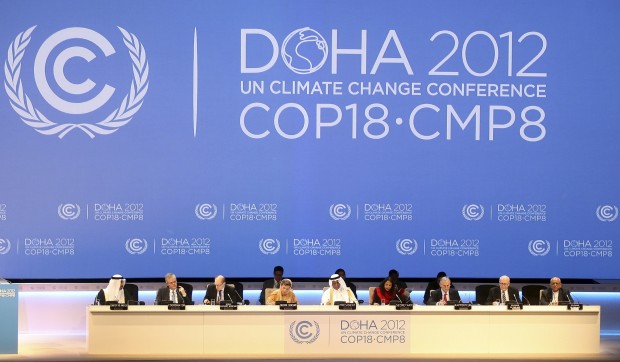"Climate Conference in Doha to lead us into a dangerous impasse"
Coalition of the willing instead of waiting for consensus – climate bailout fund needs to be implemented quickly

Statement by Dr. Thiemo Gropp, Director of the DESERTEC Foundation, on the climate conference in Doha (Qatar)
Hamburg 27th November, 2012. For the 18th UN Climate Change Conference around 20,000 people from over 190 countries have boarded planes to stay in air-conditioned hotels and produce huge amounts of CO2 all in the name of climate protection. And what is the result of almost two decades of this annual meeting? The world emits more CO2 today than ever before.
Climate protection is a global issue that cannot be solved by one country alone. But the premise of the UN climate conference that the start of comprehensive climate action must depend on the global consensus of all concerned parties brings us to a dangerous impasse. As long as countries believe that further negotiation can bring them economic advantages there will always be delay. What we need is a coalition of the willing committed to funding solutions from which all parties will benefit.
What we need is a climate bailout fund
When it came to saving the banks, politicians didn’t spend years trying to establish worldwide consensus on who should shoulder exactly how much of the burden. Instead, they reacted quickly to put together bailout funds that pumped billions into this struggling sector. Given its existential threat it is even more urgent to find a solution that addresses dangerous climate change, before it is too late.
A multinational climate rescue fund that bridges the difference in price between renewable energies and fossil fuels, could be just such a solution. It would also establish the right incentives: Participating countries would benefit most from these funds when committing strongly to climate protection instead of avoiding the necessary measures.
The good news: The “Green Climate Fund” is a done deal. In 2014, it will be ready to start work and from 2020 it will disperse €100 billion a year to address climate change. The bad news: It is not yet known where the money will come and if by 2020 nothing decisive has been done, it will be far too late to prevent dangerous climate change.
Each euro would pay off many times over
If the world's governments wish to take their responsibility to future generations seriously, they need to put their full energy in the immediate financing of the Green Climate Fund. Each euro would pay off many times over, both in terms of climate change, and in terms of development aid and security policy:
The fund would provide the necessary financial support and long-term security to attract investment in renewable energy projects, thus enabling emerging economies to meet their own rapidly growing electricity demand in a carbon neutral way, while creating new industries, jobs and opportunities and ultimately stability for their people.
Such investment would stimulate the global economy both in the short term and also provide the basis for long-term growth whilst benefitting industrialized countries through increased demand for their green technologies and services.








